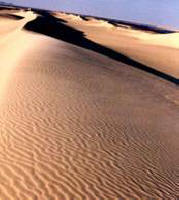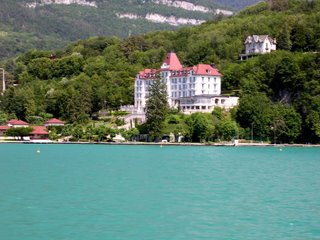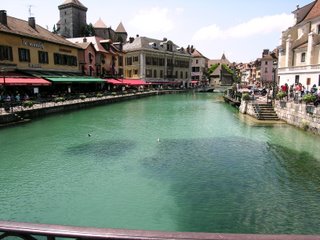How quickly and easily whole bodies of scientific knowledge can be swept aside or ignored if they don’t fit with the current political orthodoxies. If a theory does not challenge what the powers-that-be or the opinion-formers want then it exists happily with neither let nor hindrance.
There are, for example, few who would disagree with the idea that the continents are moving around all over the Earth’s surface. In geological time they’re zipping about and crashing into each other like cars on the peripherique around Paris ! More and more evidence to bolster the theory of plate tectonics accumulates all of the time. The devil, as they say, is in the detail and we have a devilish amount of detail to work with. The theory continues to develop and so now we can even postulate that the whole crust may be able to slip ’en masse’ should the distribution of land masses and ice caps become sufficiently unbalanced in relation to the rotation of the Earth. Clearly it would be catastrophic and, as yet, there is neither enough evidence nor a large body of supporters proposing it actually happened for the theory to be widely accepted. However, the evidence that is quoted already is compelling ................. and please note as well that proponents of this theory are neither vilified nor excoriated when they advance the theory and the evidence they’ve found so far. Some would use it as the underlying explanation as to the various myths about floods occurring around the world (Noah etc). I still can't make up my mind between that and the end of the last phase of the Ice Age - both are relatively close in time as far as we know. Actually, even as I write, I wonder if both could be responsible.................................
Now consider the thorny issue of climatic change and, in particular, global warming. Anyone who dares to challenge any of the current orthodoxy is treated in much the same appalling way as Copernicus.
David Bellamy and many other scientists with cases to make are effectively ignored or interviews are edited to trivialize their case. Try writing to mainstream press to make serious points contradicting the arguments currently being used and you’ll struggle to be published. Wear sandals, eat lentil (or tofu) burgers and splutter ‘global warming’ (preferably whilst frothing visibly at the mouth) then you are guaranteed as much time and column space as you like to make your case - no matter how unthinking or even downright wrong your points may be.
It doesn’t seem to matter that groups like Friends of the Earth have made some serious mistakes (not that they ever admit to them). They never - ever - experience the same level of intense sceptical questioning endured by people who question any of the environmentalists’ latest articles of faith.
Now a clear and unequivocal caveat. My position is absolutely clear. The world’s climate
IS changing, as it has done from Day One. Let’s restate and confirm that – global climatic change is a constant (isn't that an oxymoron ? Oh well !). It is also virtually incontrovertible that those changes have occurred without any input from people apart from the last 200 years or so. The extent to which we are able to affect global climatic change is also highly debatable.
Now, let’s go back to my opening statement. Palaeogeography and palaeoclimates have been studied in great detail for quite some time now. There is a wealth of knowledge which is well-documented and which ties in well with other topics such as the afore-mentioned plate tectonics. What do these two areas of scientific study tell us ? The earth’s climate has undergone enormous changes since the beginning of time and I mean ‘enormous’. This knowledge is being systematically ignored.
This blog started out from a friend’s question: she asked me why no-one ever linked the issue of global warming to the fact that the Ice Age was over. The problem is that there are two separate issues in that question. The first is to do with what is taken to be the evidence for global warming. The second, to me is more fascinating. Is the Ice Age actually over ? I - and many other souls being ignored - don’t believe it is and I also believe it goes a long way to putting the issue of global warming into a far more accurate perspective. It is now virtually certain that the Earth has experienced three previous Great Ice Ages – together with a minor Ice Age - and we are currently in the grip of the fourth with absolutely no idea of when it might end.
As I’ve just said, no-one can be sure that the Ice Age has, in fact, ended. With no evidence to the contrary, we have to assume that it has not. We know that each of the four great ice ages has operated on a time-scale measured in many millions of years. The earliest ice age is believed to have been from 2.7 - 2.3 thousand million years ago. There is evidence although a bit sketchy for obvious reasons: each glacial advance erases much of the evidence of previous ice advances. The second which resulted in ice caps almost reaching the Equator (The Snowball Earth Glaciation aka The Cryogenic Period) lasted from 800 - 600 million years ago. Just how cold was the world then ? Brrrrrrrrrrrrrrrrrrrrrr. There also was a minor ice age 460 - 430 million years ago during the Ordovician period. After that, along came the Karoo Ice Age which lasted from 350 - 260 million years during the Carboniferous and early Permian epochs. A little reading around on the internet will reveal various really interesting things such as the impact of these on the flora and fauna of the times, including extinctions and sudden explosions of species – well worth while ! Obviously the world was significantly hotter in between each Ice Age. Look at the flora which flourished for some indications. The evidence is there.
However, back to the present. The present ice age began nearly 40 million years ago but intensified approximately 3 million years ago which is a mere blink of the eye, geologically speaking. Why can’t we be sure that the ice has gone / is going for good ? The reason is that ice ages are composed of cycles when ice advances (glacial periods) and periods when it melts away (interglacial periods). At this point most Geography teachers can take over and, yawning from extreme boredom, make all of these points in their sleep.
The present ice age has been operating on cycles of 40,000 and 100,000 years for the ice advancing and retreating respectively. The last glacial period finished approximately 10,000 years ago. Accordingly, we may have to wait rather a long time to find out if the ice has gone for good.
There are various theories as to the ways in which ice ages start and finish. Volcanic eruptions, variations in Carbon Dioxide and/or methane in the atmosphere and changes caused by continental drift have been advanced as possible causes.
One of the major theories is that the earth has 'built-in' climatic change. This is far from being a new theory. It was first bounced around by the Scot, James Croll in 1860, not too widely disseminated and then more or less forgotten. The theory was reintroduced by Milankovitch in the 1930s using known astronomical data, bounced around and then ? That’s right – more or less forgotten until they came to write stuff on climatic change for geography textbooks........
There are three cycles which operate. The earth's orbit round the sun is elliptical but varies on cycles of 100,000 and 400,000 years where it is closer and further from the sun. Secondly, the earth's axis describes a circle on a time scale of 19,000 - 23,00 years (the circle of precession) and thirdly, the tilt of the earth's axis also changes on a 41,000 year cycle. Each cycle, therefore, results in variations in insolation (solar energy) reaching the earth - sometimes increasing, sometimes decreasing. Milankovitch was able to show that when these three cycles were simultaneously at the point where they resulted in the lowest insolation reaching the earth, major glaciations occurred. It’s a bit like biorhythms with triple biorhythmic highs and lows occurring in the cycles. When they all coincide on a high – great ! On a triple low – stay in bed ! So that’s the hotter and colder spells accounted for pretty well then.
This theory has since been linked to variations in carbon dioxide levels which have given the theory added strength although there are scientists who feel the theory does not explain things fully enough, especially with respect to variations within glacial and interglacial periods.
Now we move to the really interesting stuff. There is a great deal of evidence for large variations in climate in our present interglacial period: effectively the last 10,000 years. Pollen, varves, tree rings, ocean floor deposits, ice core analysis – it’s all out there to look up. What we do know is that the climate has been significantly hotter than it is just now eg the 'Atlantic' period of 6 - 7000 years ago where it was hotter and wetter than it is now. Minimum estimates are for about 2 -3 degrees more than at present. If nothing else, that alone challenges the current orthodoxy quite seriously. From then on the pattern has been one of slow and gradual temperature decline ameliorated with occasional warmer periods. It was still warm enough for many vineyards in middle and southern England in the 1100s AD.
At this point I believe we enter the period largely to blame for the gross over-reaction to global trends. From about 1250 AD temperatures started to plummet, giving us the Little Ice Age and the Frost Fairs with three temperature minima – the last was in 1850 AD. By this period of time we actually have some detailed written History which has a serious improvement in the quality of records available for analysis although, interestingly, historians tend to underplay the significance of the Little Ice Age. (And how, but that's another story for another blog and it's REALLY interesting) Let’s restate this – temperatures plummeted. There is a lot of debate about causes and how much of the world was affected but the basics are widely accepted.
Since about 1850 there has been a general warming with the occasional cooling blip caused by volcanic eruptions such as Krakatoa, Mt Agung, Hekla amongst others. Human activity may have played a part in raising global temperatures in the last 200 years but it is also quite possible that much of the warming may be a natural 'rebound' from the Little Ice Age. As things stand we have still quite a lot of warming needed to get up back to the levels of temperature the world enjoyed in the 1100s AD and even more to get back to 6000 years ago.
All the evidence is that the earth has experienced great variations in climate since the very beginning and is liable to continue to do so in the future.
Why is there such a current brouhaha about global warming ? I can’t help but believe we are seeing the confluence of several things. Firstly, I believe there is a general but genuine ignorance and lack of understanding of the Earth’s long-term climatic trends. There is too much emphasis placed upon the trends of the last 200 years and not enough on the long-term perspective. That perspective does not suit the establishment at the moment. I do wonder to what extent this selection of time scale is deliberate though. Conspiracy or cock-up ? Answers on a post card please ………………
Secondly, there are groups with agendas which require the spectre of global warming. How many can you think of ? There is a genuine, intellectually coherent argument for the development and use of renewable sources of energy together with the conservation and effective use of the earth’s resources. Global warming – as currently argued and exemplified – is not that case. It’s obvious why the anti-capitalists have latched on to the issue as yet one more stick. Their solutions though would condemn 6 thousand million people to an unsatisfactory life and no way of providing wholesale improvements.
Thirdly, a combination of the need for ‘bad news’ together with nostrums no matter how ineffective. It gives certain types of politician and environmentalist with grandiose ambitions -- and sound-bites to match - the opportunity to strut on the world stage with a global audience: “24 Hours, Four Minutes And Eleven Seconds To Save The Earth” (or was that the National HealthService ?), signing meaningless agreements which are largely a waste of time and effort. It certainly diverts attention away from serious domestic issues. It allows the imposition of ‘green’ taxes (less to do with saving the environment and more to do with meeting budget shortfalls and bottomless financial pits like the National Health Service) whilst window-dressing them with supposedly noble intentions. It’s also another area for crusading journalism – don’t you just love politicians and journalists ? Just think if the 70 trillion dollars or so promised in the Kobe agreement to 'tackle global warming' was being wasted in any other clearly unacceptable way - imagine the outcry !
So where from here ? I’d like a genuine and open debate with vested interests shown to be exactly that. Everyone goes on about carbon dioxide as though it’s the Great Satan. However, methane is a far more effective greenhouse gas and it’s being pumped out into the air by rotting vegetation, termites and flatulent cattle in truly enormous quantities. What’s one of the signs of a country that has begun to arrive economically ? That’s it – they eat lots of meat. More beasts reared for meat = more methane. There are also very large amounts of methane crystallate on the ocean floors, kept in that form by low temperatures. If they are released then we have a real problem.
I’m not hopeful. Look how long Copernicus had to wait to be vindicated. There are some signs of hope though.
In conclusion
No journalist, politician or member of the "green barmy army" should be allowed to pontificate on global warming until they've described and explained the variations in the Earth's climate right back to the dawn of time. As pointed out earlier, there are serious and valid arguments for many of the environmentally friendly options BUT global warming is not and is unlikely ever to be one of those arguments. What a shame Copernicus wasn't able to blog.



